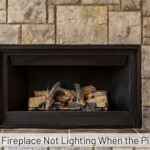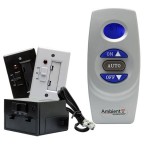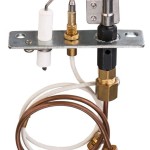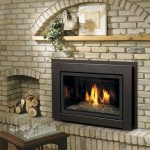Biofuel Fireplaces: A Comprehensive Guide
Biofuel fireplaces are an alternative to traditional wood-burning fireplaces that offer several advantages. They use renewable fuels, produce no smoke or soot, and require minimal maintenance. In this article, we'll explore the essential aspects of biofuel fireplaces to help you make an informed decision if they're right for your home.
Fuel Options
Biofuel fireplaces burn liquid or gel biofuels derived from plants or organic materials. Common fuel choices include ethanol, isopropyl alcohol, and biodiesel. It's essential to use the fuel recommended by the fireplace manufacturer to ensure safe operation.
Types of Biofuel Fireplaces
There are two main types of biofuel fireplaces:
- Freestanding units: These fireplaces are designed to be placed in any room and typically come with a fuel tank. They are portable and easy to move, making them suitable for apartments or rented spaces.
- Built-in units: These fireplaces are integrated into the wall or surround and provide a more permanent and stylish look. They have larger fuel tanks and require professional installation.
Benefits of Biofuel Fireplaces
Biofuel fireplaces offer several advantages:
- Renewable and sustainable: Biofuels are derived from renewable sources and have a low carbon footprint.
- Clean and efficient: Biofuel fireplaces produce no smoke or soot, making them an excellent choice for indoor use.
- Low maintenance: Biofuel fireplaces require minimal maintenance compared to wood-burning fireplaces. They do not need to be cleaned as frequently and produce no ash.
- Versatile: Biofuel fireplaces are available in various designs and can match any decor style. They can be used as a primary or supplemental heat source.
Safety Considerations
While biofuel fireplaces are generally safe to use, some essential safety precautions should be followed:
- Always read the manufacturer's instructions carefully before using the fireplace.
- Keep flammable materials away from the fireplace.
- Never leave the fireplace unattended while burning.
- Open windows or ventilate the room when using a biofuel fireplace to ensure adequate airflow.
- Do not pour biofuel into an open flame.
Conclusion
Biofuel fireplaces are a modern and eco-friendly alternative to traditional wood-burning fireplaces. They offer a range of benefits, including renewable fuel usage, clean operation, low maintenance, and versatility. By understanding the essential aspects of biofuel fireplaces, you can make an informed decision about whether or not they're the right choice for your home.

Henley Bioethanol Fireplace

Bioethanolfires Bioethanol Fire Inserts Bio Ethanol Pits

Ethanol Fireplace Pros Bio Fireplaces

The Bio Flame Ethanol Fireplaces

Freestanding Bio Ethanol Fireplace Feel Stand

Cocoon Aeris Black Bio Ethanol Fireplace Hawkesbury Heating

Ethanol Fireplace Pros Bio Fireplaces

Ethanol Fireplace Automatic Smart Remote Controlled Afire

Bio Ethanol Fireplace
:max_bytes(150000):strip_icc()/Ethanol-Fireplace-via-smallspaces.about.com-56a889795f9b58b7d0f3278c.jpg?strip=all)
Using An Ethanol Fireplace In A Small Home
Related Posts








